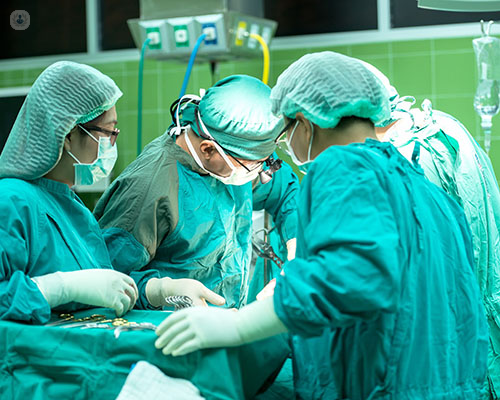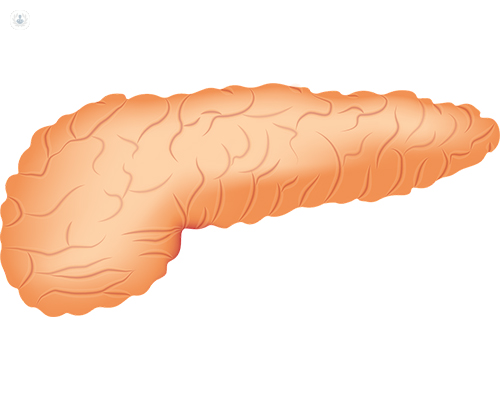What are the benefits of Nanoknife?
Written by:Nanoknife technology is a new form of cancer treatment that has been shown to have great outcomes for patients. In his latest article, leading hepato-pancreato-biliary surgeon Mr Krishna Menon explains this treatment in detail, including the types of cancer it can treat and its benefits.

What is Nanoknife?
Nanoknife is a novel technology that has been developed for the treatment of pancreatic and liver cancer. The technology involves the placement of needles in or around the tumour and passing high voltage electrical current to destroy cancer cells and the tumour. I have pioneered the use of this technology at King's College Hospital, and I now offer the service privately at Cleveland Clinic, London. Although the technology was developed for pancreatic cancer it is also used for liver tumours in conjunction with 3D liver surgery.
What are the advantages of Nanoknife?
The main advantage of Nanoknife is that it does not cause thermal damage to tissue, bile ducts and blood vessels. It is well tolerated, and in experienced hands has a low complication rate.
Is Nanoknife an effective treatment for pancreatic cancer?
Nanoknife is effective for pancreatic cancer in two scenarios.
Firstly, if the pancreatic cancer is locally advanced. Following systemic chemotherapy, Nanoknife treatment of pancreatic cancer has been shown to prolong survival and is now an accepted indication.

Secondly, I pioneered globally a technique of applying Nanoknife to the margins of the tumour prior to surgical resection in pancreatic cancer that can be surgically removed. This has been shown to destroy cancer cells on the margins and our early results have been shown to improve outcomes.
What does a Nanoknife procedure to treat pancreatic cancer entail?
Nanoknife treatment entails placing needles in or around the tumour under CT scan or Ultrasound scan guidance. A high-voltage electrical current is delivered through the needles and ablates the tumour and destroys cancer cells.
Is Nanoknife usually given in conjunction with other treatments?
Yes, commonly Nanoknife treatment is offered in locally advanced pancreatic cancer after chemotherapy. It can be combined with other ablation technology and surgical resection as well. More importantly, I have also used it in combination with 3D liver surgery to ablate liver tumours close to bile ducts or blood vessels.
Mr Krishna Menon is a leading London-based hepato-pancreato-biliary surgeon with more than 25 years of experience. If you would like to book a consultation with Mr Menon you can do so today via his Top Doctors profile.


